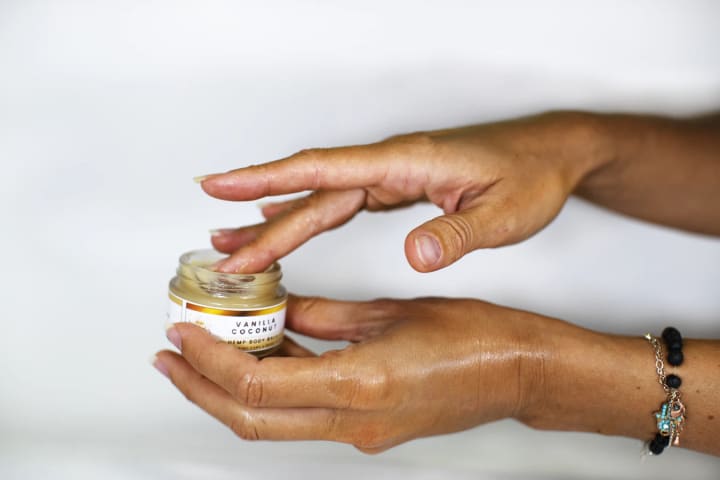CBD for Pain Management: What Scientists Have to Say
How Can CBD Help With Pain Relief?

Cannabidiol (CBD) is a phytocannabinoid discovered in 1940. It’s one of 113 identified cannabinoids in marijuana plants and accounts for up to 40 percent of the plant's extract.
Clinical research on CBD included preliminary studies of pain, anxiety, cognition, and movement disorders. However, more research is needed to identify its long-term effectiveness and safety.
Today, we’re going to explain how CBD works and how it can be used for pain management.
What Are the Usual Effects?

Many plants contain cannabinoids. However, people often associate them only with cannabis. Unlike the common cannabinoids— like tetrahydrocannabinol (THC)— CBD doesn’t promote the psychoactive effect because it doesn’t impact any crucial receptors.
Your body contains an endocannabinoid system, commonly known as ECS, which receives and transforms signals from the cannabinoids. The body produces some of its own cannabinoids called “Endocannabinoids.” What the ECS does is it helps to regulate certain functions like immune-system responses, sleep, and pain.
When THC makes its way into your body, it affects the endocannabinoid receptors in your brain, causing the typical “high” feeling. This activates your brain’s reward mechanism, producing dopamine— one of the many pleasure-inducing chemicals.
Can You Get High Consuming CBD?

CBD has almost nothing to do with THC. It’s a completely different compound and has more complex effects. For starters, it isn’t psychoactive, so you don’t get the high that you’d otherwise obtain from smoking pot. However, it does influence your body to effectively utilize its own endocannabinoids.
One study indicates this is partly because CBD does little to nothing to the ECS, and rather activates other compounds found in your endocannabinoid system.
So, for instance, CBD stops your body from absorbing a compound called anandamide, which is often linked to regulating pain. Therefore, increased amounts of anandamide in your bloodstream could reduce the level of pain you feel.
CBD further limits inflammation in your nervous system and brain. So, people with chronic pain and insomnia may benefit from it.
The Role of CBD In Treating Pain

For centuries, people have consumed CBD to treat pain, but it wasn’t until recently that CBD creams like the Pain Relief Cream Pump offered a 100% natural, nonaddictive pain relief solution. More and more medical studies are being done to ensure the efficiency and safety of CBD.
That said, here are the possible health benefits of using CBD:
Arthritis Pain
In 2016, a group of researchers conducted a study in which they used animal models to determine whether or not CBD could treat those with arthritis pain.
Topical gels containing CBD were applied to animals with arthritis. Within 4 days, the researchers noticed a huge drop in signs of chronic pain, as well as inflammation, without any major side effects.
If you have arthritis and are considering CBD, you may find it beneficial. While it may relieve pain, we’d still recommend consulting a physician beforehand as more human-based studies are needed to confirm the findings.
CBD and Multiple Sclerosis
According to WebMD, multiple sclerosis (MS) is a chronic disease that affects your central nervous system, especially the brain, optic nerves, and spinal cord. This leads to a vast range of symptoms throughout your body.
Muscle spasms, as research shows, are a very common symptom of MS. They can often be extreme, so much so that they end up causing constant pain throughout the body.
One report showed that short-term CBD usage could potentially reduce the amount of spasticity someone feels. While the results may be modest, many users reported a significant reduction in various common symptoms. However, as stated earlier, we could definitely benefit from more human-based studies.
Chronic Pain
Another aspect the aforementioned report studied was the use of CBD for chronic pain. The same researchers gathered the results of several systematic reviews incorporating dozens of studies and trials. Their final research confirmed that there’s substantial evidence of CBD being a solid treatment for adults suffering from chronic pain.
A separate report also supports these findings, suggesting that the use of CBD can possibly reduce inflammation and pain.
The researchers who conducted the report found that patients weren’t likely to obtain a tolerance to the potential effects of CBD. Therefore, they wouldn’t require a continuous increase in their dosage.
They concluded affirming cannabinoids like CBD may offer effective new remedies for those with pain and inflammation.
Other Uses
As of now, CBD has a wide range of uses and promising results.
These include:
- Treating epilepsy and seizures
- Drug withdrawal and smoking cessation
- Anxiety treatment
- Antipsychotic effects on those with schizophrenia
- Reducing some effects of Alzheimer’s Disease, as confirmed by research
- Future applications in treating type 1 diabetes, cancer, and acne
Although more studies are needed to verify the many uses of CBD, it is slowly forming as one of the most versatile and promising treatments.
In 2018, the FDA approved CBD as an effective treatment for those with two of the rarest types of epilepsy: Dravet syndrome and Lennox-Gastaut syndrome.
Dosage

This is a tricky part. The FDA doesn’t regulate CBD products for the majority of conditions. Thus, dosages are pretty much open to interpretations, and people need to treat them with proper caution.
Anyone planning on consuming CBD for whatever reason is well advised to consult a doctor regarding usage and dosage.
As already mentioned, the FBA approved a specific form of CBD for certain kinds of epilepsy, with the brand-name prescription drug called Epidiolex. If you’re using the same medication, make sure to follow your doctor’s advice on doses.
Wrapping Up
While a number of studies have concluded that CBD can be beneficial for pain, we believe more research is needed, particularly in long-term research with human subjects.
That said, CBD does show promising results for treating pain. As mentioned throughout the article, many studies suggest that CBD can be consumed to treat chronic pain in several cases. As there are virtually no intoxicating effects, CBD is promising for adults with pain.
Again, we cannot stress this enough, you must consult a physician when considering taking CBD for the first time.






Comments
There are no comments for this story
Be the first to respond and start the conversation.